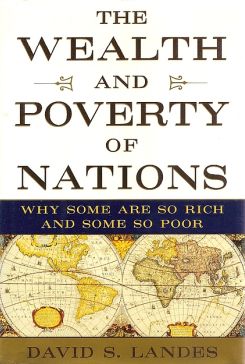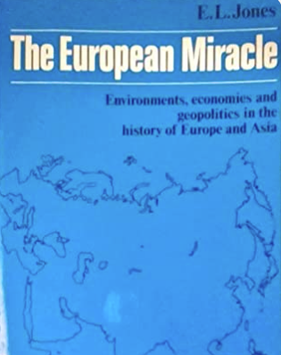
Eurocentrism refers to viewing the West as the center of world events or superior to all other cultures. The exact scope of Eurocentrism varies from the entire Western world to just the continent of Europe or even more narrowly, to Western Europe. When the term is applied historically, it may be used in reference to the presentation of the European perspective on history as objective or absolute, or to an apologetic stance toward European colonialism and other forms of imperialism.

Afrocentrism is a worldview that is centered on the history of people of African descent or a view that favors it over non-African civilizations. It is in some respects a response to Eurocentric attitudes about African people and their historical contributions. It seeks to counter what it sees as mistakes and ideas perpetuated by the racist philosophical underpinnings of Western academic disciplines as they developed during and since Europe's Early Renaissance as justifying rationales for the enslavement of other peoples, in order to enable more accurate accounts of not only African but all people's contributions to world history. Afrocentricity deals primarily with self-determination and African agency and is a pan-African point of view for the study of culture, philosophy, and history.

The Zimbabwe African National Union (ZANU) was a militant socialist organisation that fought against white-minority rule in Rhodesia, formed as a split from the Zimbabwe African People's Union (ZAPU) in 1963. ZANU split in 1975 into wings loyal to Robert Mugabe and Ndabaningi Sithole, later respectively called ZANU–PF and ZANU–Ndonga. These two sub-divisions ran separately at the 1980 general election, where ZANU–PF has been in power ever since, and ZANU–Ndonga a minor opposition party.
The Patriotic Front in Zimbabwe was a coalition of two African Leadership parties: the Zimbabwe African Peoples Union (ZAPU) and the Zimbabwe African National Union (ZANU) which had worked together to fight against white minority rule in Rhodesia.
David Saul Landes was a professor of economics and of history at Harvard University. He is the author of Bankers and Pashas, Revolution in Time, The Unbound Prometheus, The Wealth and Poverty of Nations, and Dynasties. Such works have received both praise for detailed retelling of economic history, as well as scorn on charges of Eurocentrism, a charge he openly embraced, arguing that an explanation for an economic miracle that happened originally only in Europe must of necessity be a Eurocentric analysis.
Occidentalism refers to a discipline that discusses the Western world. In this context the West becomes the object, while the East is the subject. The West in the context of Occidentalism does not refer to the West in a geographical sense, but to culture or custom, especially covering the fields of thought, philosophy, sociology, anthropology, history, religion, colonialism, war, apartheid, and geography. It is not as popular as Orientalism in the general public and in academic settings.

The Wealth and Poverty of Nations: Why Some are So Rich and Some So Poor is a 1998 book by historian and economist David Landes (1924–2013). He attempted to explain why some countries and regions experienced near miraculous periods of explosive growth while the rest of the world stagnated. The book compared the long-term economic histories of different regions, specifically Europe, United States, Japan, China, the Arab world, and Latin America. In addition to analyzing economic and cliometric figures, he credited intangible assets, such as culture and enterprise, to explain economic success or failure.

The European Miracle: Environments, Economies and Geopolitics in the History of Europe and Asia is a book written by Eric Jones in 1981 to refer to the sudden rise of Europe during the Late Middle Ages. Ahead of the Islamic and Chinese civilizations, Europe steadily rose since the early modern period to a complete domination of world trade and politics that remained unchallenged until the early 20th century.

Marshall Goodwin Simms Hodgson was an American historian and scholar of Islamic studies best known for his pioneering work on Islamic civilization and his contributions to world history. He was a professor at the University of Chicago, where he developed a yearlong course on Islamic civilizations and served as chairman of the interdisciplinary Committee on Social Thought.
Transmodernism is a philosophical and cultural movement founded by Argentinian-Mexican philosopher Enrique Dussel. He refers to himself as a transmodernist and wrote a series of essays criticising the postmodern theory and advocating a transmodern way of thinking. Transmodernism is a development in thought following the period of postmodernism. As a movement, it was also developed from modernism and critiques modernity and postmodernity, viewing them as the end of modernism.

The Eastern Origins of Western Civilisation, written by the political scientist John M. Hobson in 2004, is a book that argues against the historical theory of the rise of the West after 1492 as a "virgin birth", but rather as a product of Western interactions with a more technically and socially advanced Eastern civilization.
Afrocentric education refers to a pedagogical approach to education designed to empower people of the African diaspora with educational modes in contact and in line with the cultural assumptions common in their communities. A central premise behind it is that many Africans have been subjugated by having their awareness of themselves limited and by being indoctrinated with ideas that work against them and their cultures.
The coloniality of power is a concept interrelating the practices and legacies of European colonialism in social orders and forms of knowledge, advanced in postcolonial studies, decoloniality, and Latin American subaltern studies, most prominently by Anibal Quijano. It identifies and describes the living legacy of colonialism in contemporary societies in the form of social discrimination that outlived formal colonialism and became integrated in succeeding social orders. The concept identifies the racial, political and social hierarchical orders imposed by European colonialism in Latin America that prescribed value to certain peoples/societies while disenfranchising others.
Hatoon Ajwad al-Fassi is a Saudi Arabian historian, author and women's rights activist. She is an associate professor of women's history at King Saud University in Saudi Arabia, where she has been employed since 1989 and at the International Affairs Department at Qatar University. At the university, al-Fassi carries out historical research. Based on her research into the pre-Islamic Arabian kingdom of Nabataea, al-Fassi claims that women in the ancient kingdom had more independence than women in modern Saudi Arabia. Al-Fassi was active in women's right to vote campaigns for the 2005 and 2011 municipal elections and was active in a similar campaign for the 2015 municipal elections. She was arrested in late June 2018 as part of a crackdown on women's rights activists and was released almost a year later, in early May 2019.

Decoloniality is a school of thought that aims to delink from Eurocentric knowledge hierarchies and ways of being in the world in order to enable other forms of existence on Earth. It critiques the perceived universality of Western knowledge and the superiority of Western culture, including the systems and institutions that reinforce these perceptions. Decolonial perspectives understand colonialism as the basis for the everyday function of capitalist modernity and imperialism.
Asiacentrism is a political ideology, an economic perspective, or an academic orientation with "a focus on Asia or on cultures of Asian origin." In some cases, this stance regards Asia to be either unique or superior to other regions and takes the form of ascribing to Asia ethnocentric significance or supremacy at the cost of the rest of the world. The concept is often associated with a projected Asian Century, the expected economic dominance of Asia in the 21st century.
Epistemic injustice is injustice related to knowledge. It includes exclusion and silencing; systematic distortion or misrepresentation of one's meanings or contributions; undervaluing of one's status or standing in communicative practices; unfair distinctions in authority; and unwarranted distrust.
Feminism in Saudi Arabia dates back to the ancient, pre-Roman Nabataean Kingdom in which women were independent legal persons. Twenty-first century feminist movements in Saudi Arabia include the women to drive movement and the anti male-guardianship campaign. Madawi al-Rasheed argued in 2019 that the Saudi feminist movement was "the most organised and articulate civil society" in Saudi Arabia.

Decolonization of knowledge is a concept advanced in decolonial scholarship that critiques the perceived hegemony of Western knowledge systems. It seeks to construct and legitimize other knowledge systems by exploring alternative epistemologies, ontologies and methodologies. It is also an intellectual project that aims to "disinfect" academic activities that are believed to have little connection with the objective pursuit of knowledge and truth. The presumption is that if curricula, theories, and knowledge are colonized, it means they have been partly influenced by political, economic, social and cultural considerations. The decolonial knowledge perspective covers a wide variety of subjects including philosophy, science, history of science, and other fundamental categories in social science.

Coloniality of knowledge is a concept that Peruvian sociologist Anibal Quijano developed and adapted to contemporary decolonial thinking. The concept critiques what proponents call the Eurocentric system of knowledge, arguing the legacy of colonialism survives within the domains of knowledge. For decolonial scholars, the coloniality of knowledge is central to the functioning of the coloniality of power and is responsible for turning colonial subjects into victims of the coloniality of being, a term that refers to the lived experiences of colonized peoples.










